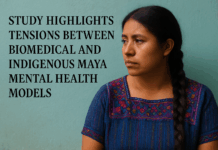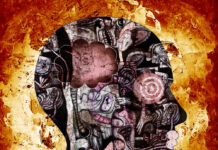In Bangladesh, where mental health services are scarce and often shaped by Western psychiatric models, Indigenous communities face not only limited access to care but a deeper, less visible form of exclusion. Their cultural knowledge, healing traditions, and lived experiences are routinely left out of the systems meant to serve them.
A new article by Omar Faruk, published in Cambridge Prisms: Global Mental Health, describes this exclusion as a form of epistemic injustice through the systematic devaluation of Indigenous ways of knowing. Drawing on case studies from Bangladesh, Faruk outlines how this injustice contributes to persistent mental health disparities.
He proposes a six-part framework designed to guide mental health systems toward greater epistemic inclusion. Rooted in cultural sensitivity, community collaboration, and human rights, the framework offers a practical model for integrating Indigenous perspectives into care, both in Bangladesh and across global mental health initiatives.
“Indigenous peoples across the world, including in Bangladesh, experience unique and higher risks of mental health problems due to a combination of historical and systemic factors such as colonialism and lack of access to healthcare,” writes Faruk. “Epistemic injustice plays a crucial role in this issue by perpetuating the marginalization of Indigenous voices in knowledge creation and healthcare, which further contributes to mental health disparities.”
















But we should be clear about this: The “Western Model” doesn’t work in the West, either! And psychiatry, as an organized group, has not allowed revisions to that model whether they come from innovative Western sources (such as Hubbard) or traditional Eastern sources (such as the Vedic traditions, or Buddhism).
So this issue goes WAY BEYOND indigenous people when it comes to the Western “mental health” system. It involves ALL the people of Earth; only shadowy power groups think they are benefiting from this unwillingness to allow in more workable and acceptable mental healing practices.
Report comment
Very true!
Report comment